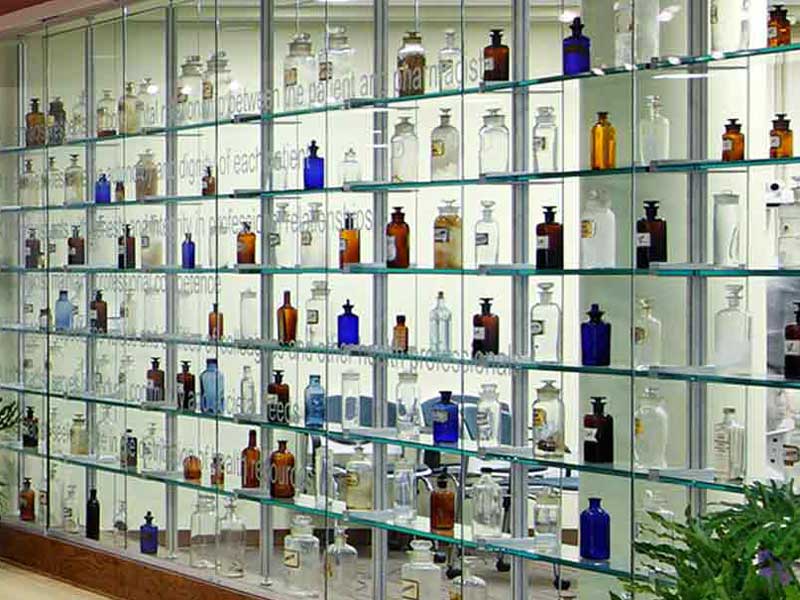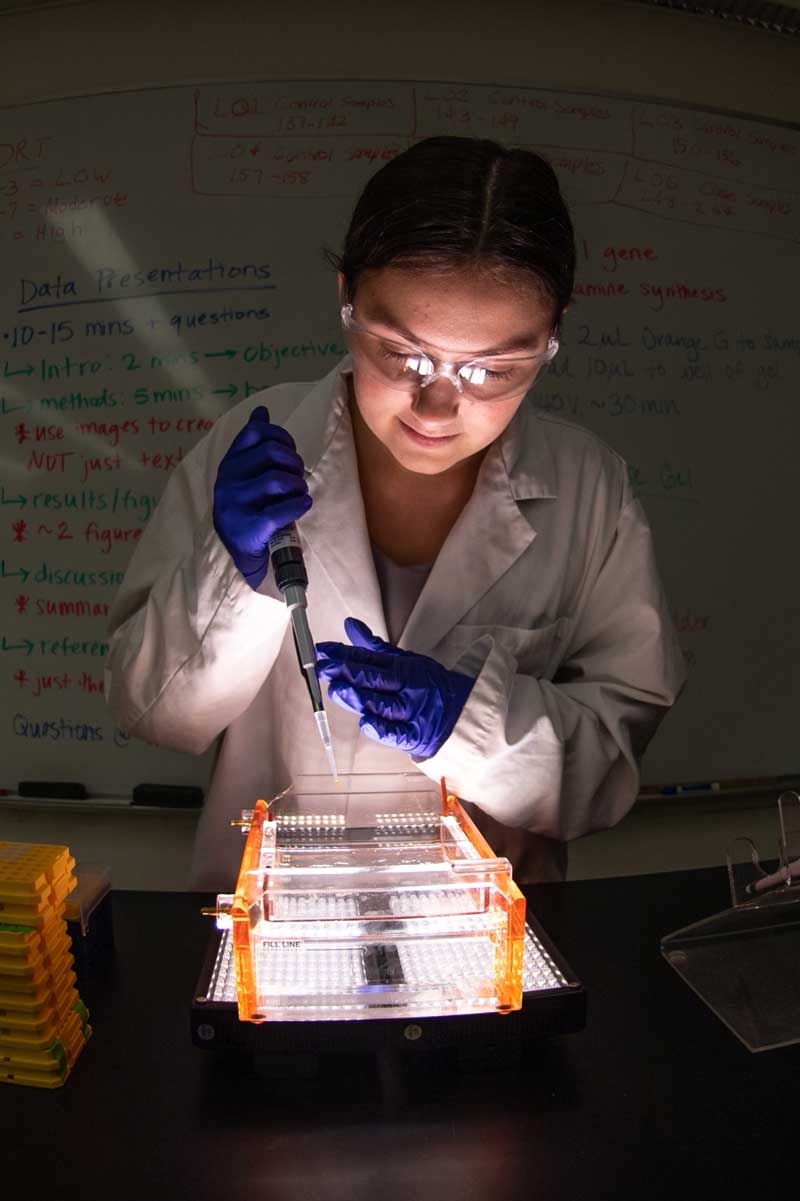Ph.D. in Pharmaceutical Sciences:
Pharmacoeconomics and Health Outcomes Concentration
Preparing innovators, entrepreneurs and experts for futures in academia, research, industry and regulatory agencies
Our Ph.D. in Pharmaceutical Sciences with a concentration in Pharmacoeconomics and Health Outcomes integrates advanced pharmaceutical sciences with rigorous research methodologies. Students gain expertise in economic evaluation and health care policy analysis, preparing them to influence health care decision-making and policy development.
Graduates of this program pursue careers as health economists, policy analysts, or researchers in pharmaceutical companies, government agencies, or academia. They contribute to enhancing health care efficiency and equity through evidence-based economic analysis and informed policy recommendations.

Program Details
About
Four-to-five-year, full-time in-person program
The Ph.D. in pharmaceutical sciences with a concentration in pharmacoeconomics and health outcomes program provides advanced training in evaluating the economic and societal impact of pharmaceutical interventions. Through a blend of advanced coursework, intensive laboratory research and collaboration with leading experts in the field, students gain a deep understanding of health economics, outcomes research and policy analysis. Graduates are prepared as skilled researchers capable of assessing the value and effectiveness of health care interventions, informing health care decision-making and driving improvements in patient outcomes and health care efficiency within both industry and academic settings.
Administration and Research
This degree is administered by the Department of Pharmacotherapy and Outcomes Science.
- Program director: Joseph McClay, Ph.D.
- Health economics and outcomes research focus areas
- Info for current students
For questions about our program, email us at sopgradadmit@vcu.edu or complete our Request Info Form.
Key Degree Links
The links below are to entries in VCU Bulletin, the official source for course and academic program information.

Application Info

How to Apply
- Complete the VCU graduate application ($75 fee)
- Submit the following materials with your application:
- Official transcripts
- Three letters of recommendation
- Statement of intent
- International student? Visit the VCU Graduate International Applicants page for requirements and materials you'll need to provide
| Due Date for Fall Entry | Decision Notification |
|---|---|
| Feb. 1 | Rolling |
Questions? Visit our Frequently Asked Questions page or email sopgradadmit@vcu.edu.
Financial Resources and Support
Use the following links to understand what your attendance costs will be and how assistantships and aid can help make your degree affordable.
Career Paths

Where will your degree take you?
There are many career paths for pharmaceutical scientists. The VCU School of Pharmacy has a diverse curriculum, experiential opportunities and
the right support to help you along the path you choose.
Learn more about what careers are available to you when you earn this degree.
Questions?
Visit our FAQ page for a list of frequently asked questions or feel free to reach out to us according to the topics you are interested in learning more about below.
- Questions about our program or admissions? Contact us at sopgradadmit@vcu.edu or complete our Request Info Form.
- Questions about financing your degree? Visit VCU Admissions' Financial Guidance page.
- Questions about our areas of research? Visit the Department of Pharmacotherapy and Outcomes Science research page or reach out to any of the department's faculty on their faculty and staff directory.
Why VCU?
UNLIMITED Potential
At VCU School of Pharmacy, we're committed to an education that's focused on you, your goals and your unlimited potential. As a Ph.D. student in the pharmacoeconomics and health outcomes concentration, you will:
- take courses across disciplines such as statistics, organization of health care systems, data science, economic modeling and econometrics
- engage in one-on-one mentoring experiences with world-class faculty
- sharpen your skills at scientific writing and applying for funding opportunities while you obtain professional experiences
- find your community in our graduate student association and other student groups
- graduate with the knowledge and advanced methodological training to become a researcher and a leader in pharmacoepidemiology, pharmacy benefits and policy, and health economics and outcomes research
Recent graduates of the Ph.D. concentration in pharmacoeconomics and health outcomes have progressed to senior professional careers in different settings, especially the pharmaceutical industry, academia and government agencies.
